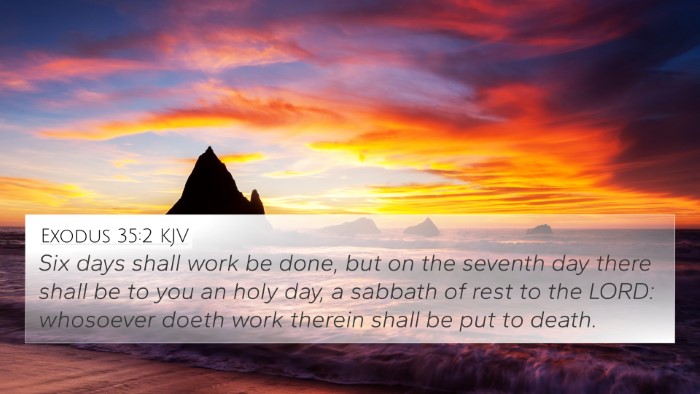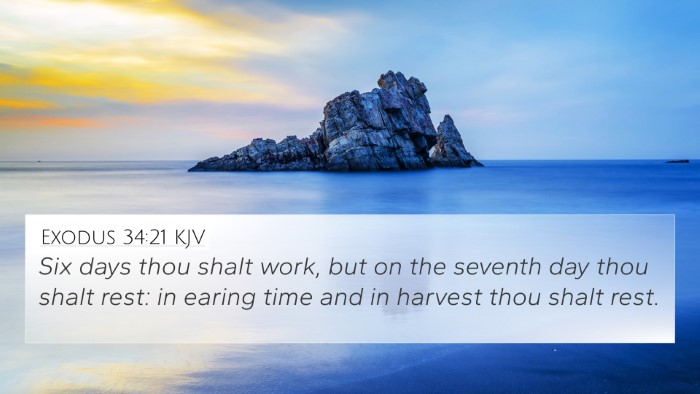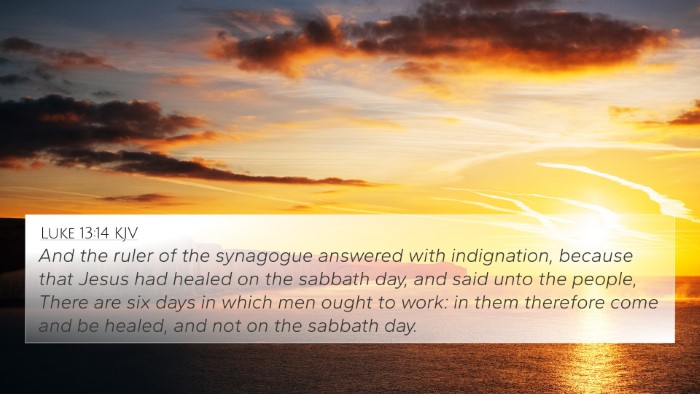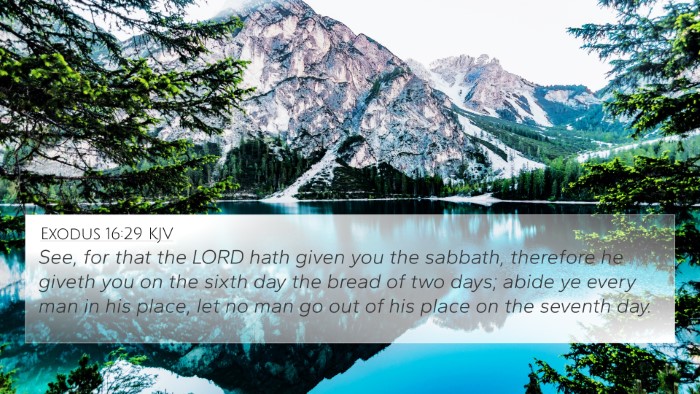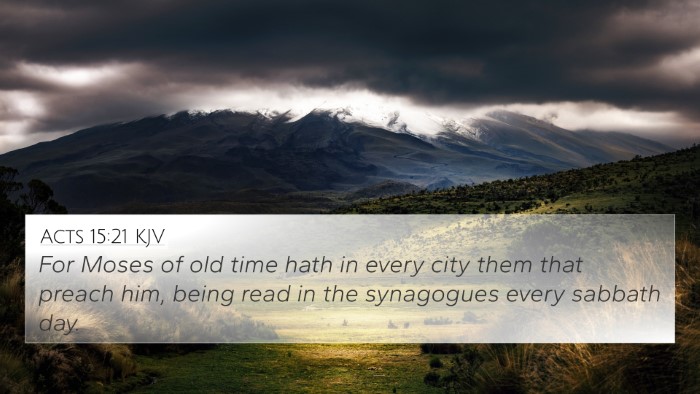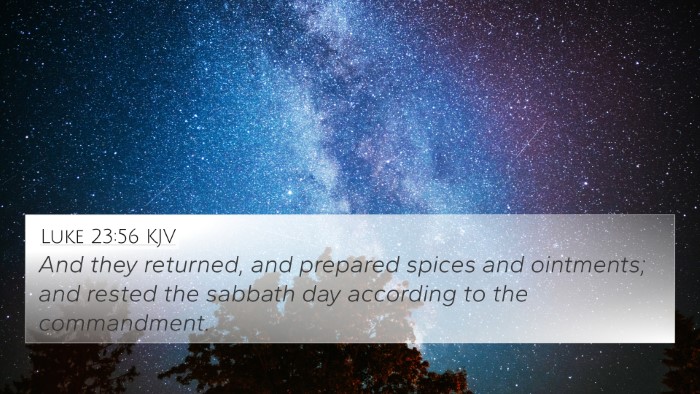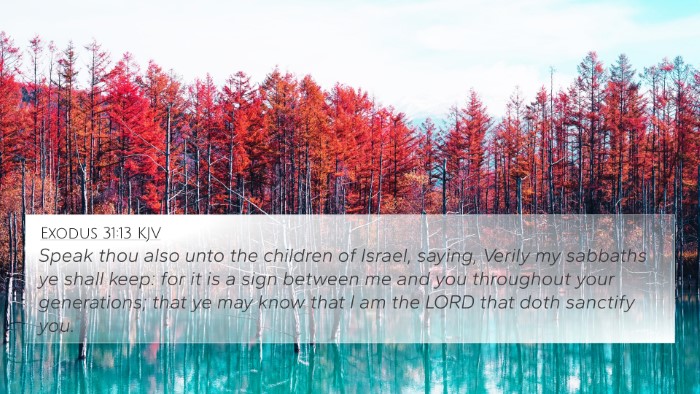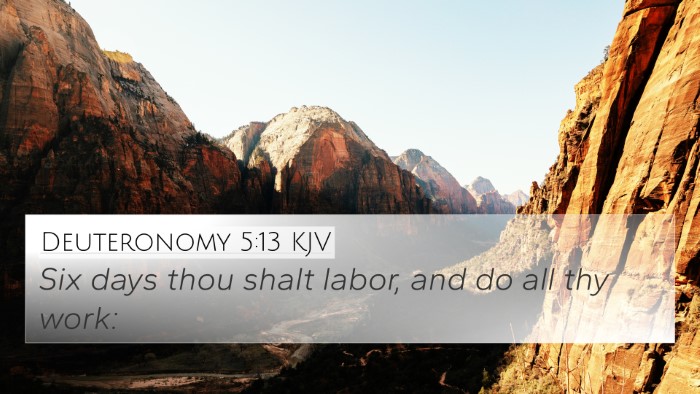Understanding Leviticus 23:3
Leviticus 23:3 states: "Six days shall work be done: but the seventh day is the sabbath of rest, an holy convocation; ye shall do no work therein: it is the sabbath of the Lord in all your dwellings."
Verse Summary
This verse emphasizes the sanctity of the Sabbath, highlighting it as a day of rest and a sacred assembly dedicated to the Lord. It outlines the importance of ceasing work on this day, which is in alignment with the creation pattern established in Genesis.
Historical Context
The context of Leviticus includes the establishment of laws for the Israelites as they wandered in the desert. This particular command serves to set the Sabbath apart from ordinary days, grounding the Jewish faith in a rhythm of work and rest that mirrors God's creation.
Thematic Insights
- Rest and Worship: The Sabbath is not only about rest but also about solemn assembly and worship.
- Divine Pattern: The command reflects God’s own rest after creation, modeling a rhythm of work and rejuvenation for humanity.
- Covenantal Significance: Observance of the Sabbath signifies the covenant relationship between God and His people.
Commentary Insights
Matthew Henry's Commentary
Matthew Henry reflects on the significance of the Sabbath as an essential aspect of worship. The day is to be set apart for rest and reflection, echoing the themes of creation and God's divine order. Henry emphasizes that the Sabbath should be honored in all dwellings, promoting a family-oriented observance.
Albert Barnes' Commentary
Albert Barnes notes that the Sabbath is a perpetual reminder of God's creation and His authority. He points out that the prohibition against work serves a dual purpose: to honor God and to allow individuals to recharge physically and spiritually.
Adam Clarke's Commentary
Adam Clarke offers insights into the cultural and historical significance of the Sabbath within Jewish tradition. He explains the necessity for periodic rest in stressful agrarian lifestyles, and the social implications of gathering for worship, underscoring the communal aspect of this command.
Cross-References
Leviticus 23:3 connects with several other scriptures, highlighting a consistent Biblical theme of rest and divine authority:
- Genesis 2:2-3 - The sanctification of the Sabbath after creation.
- Exodus 20:8-11 - The Third Commandment regarding Sabbath observance.
- Isaiah 58:13-14 - Instructions on honoring the Sabbath and delighting in the Lord.
- Mark 2:27 - Jesus states that the Sabbath was made for man, not man for the Sabbath.
- Hebrews 4:9-10 - The promise of a Sabbath rest for the people of God.
- Acts 15:21 - Early church understanding and observance of the Sabbath.
- Colossians 2:16-17 - New Testament perspective on the Sabbath and religious observance.
Connections Between Bible Verses
Through cross-referencing these verses, we see a coherent biblical narrative that reflects on the significance of the Sabbath. Each of these scriptures reinforces the teachings found in Leviticus 23:3, providing a comprehensive view of the day of rest's spiritual and practical implications.
Tools for Bible Cross-Referencing
For those studying the Bible, utilizing tools for cross-referencing can deepen understanding. Some helpful resources include:
- Bible concordance for locating themes and words.
- Bible cross-reference guide for systematic study.
- Online and physical Bible cross-reference systems for easy navigation.
Conclusion
Leviticus 23:3 serves as a central pillar in the understanding of work and rest in the life of faith. Its implications resonate throughout scripture, connecting the Old and New Testaments, and guiding believers in their rhythm of life and worship.





